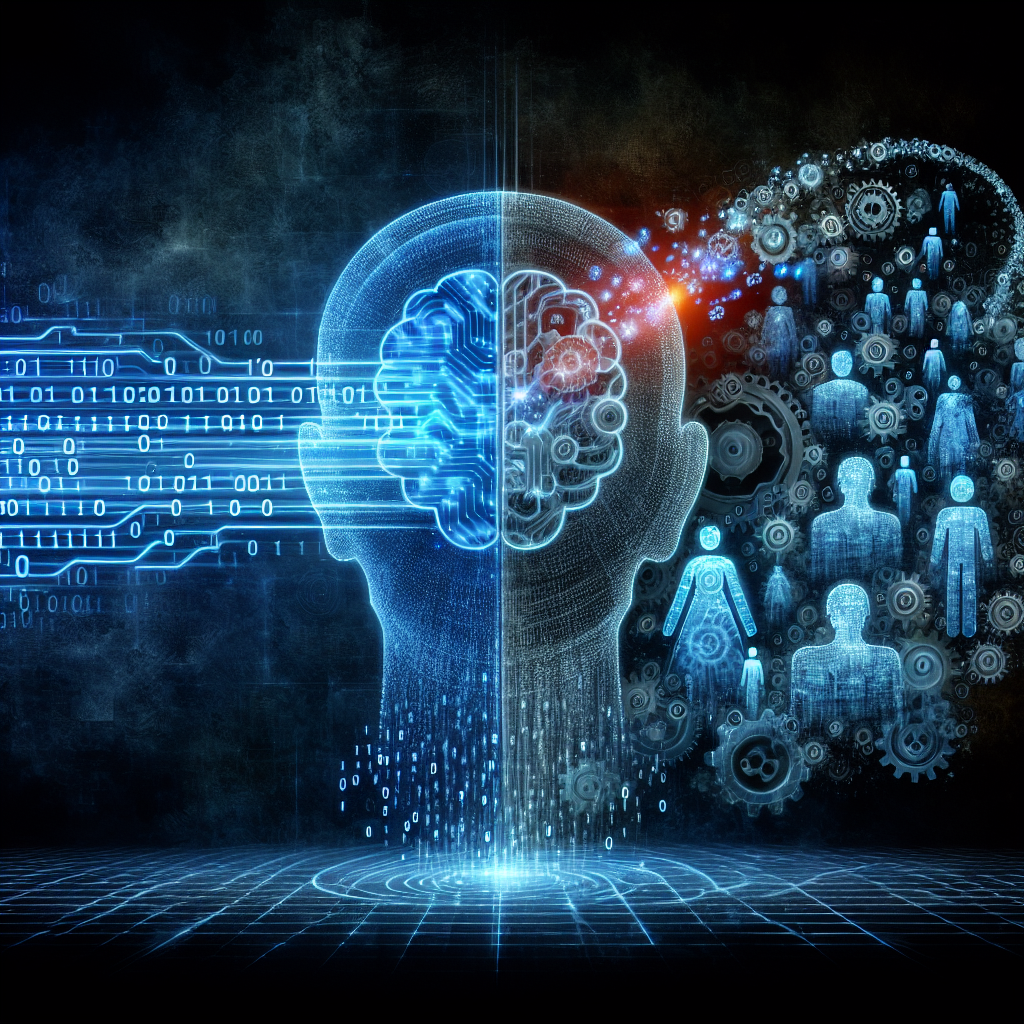Artificial Intelligence (AI) deployment has been reshaping the workforce in recent years, revolutionizing the way businesses operate and the roles that employees play within organizations. AI technologies have the potential to automate routine tasks, improve productivity, and enhance decision-making processes. However, this technological advancement also raises concerns about job displacement, skills gaps, and ethical considerations. In this article, we will explore how AI deployment is reshaping the workforce and the implications for employees and businesses.
AI Deployment in the Workforce
AI deployment refers to the integration of AI technologies into various business processes to streamline operations, improve efficiency, and drive innovation. AI encompasses a range of technologies, including machine learning, natural language processing, robotics, and computer vision, among others. These technologies enable machines to perform tasks that typically require human intelligence, such as data analysis, pattern recognition, and decision-making.
In the workforce, AI deployment has the potential to transform the nature of work and the skills required to succeed in the digital economy. AI technologies can automate routine and repetitive tasks, freeing up employees to focus on higher-value activities that require human creativity, critical thinking, and emotional intelligence. For example, AI-powered chatbots can handle customer inquiries, allowing human customer service agents to engage in more complex problem-solving and relationship-building activities.
AI deployment also enables organizations to make data-driven decisions and predictions, leading to improved operational efficiency and strategic planning. AI algorithms can analyze vast amounts of data to identify patterns, trends, and insights that human analysts may overlook. This capability can help businesses optimize processes, personalize customer experiences, and anticipate market trends.
Implications for Employees
The adoption of AI technologies in the workforce has significant implications for employees across industries. On the one hand, AI deployment can enhance job satisfaction and productivity by automating mundane tasks and enabling employees to focus on more fulfilling and challenging work. For example, AI-powered tools can automate data entry, analysis, and reporting, allowing employees to spend more time on strategic planning, innovation, and creativity.
However, AI deployment also raises concerns about job displacement and skills obsolescence. As AI technologies become more sophisticated and capable of performing complex tasks, some jobs may be at risk of automation. For example, routine tasks in manufacturing, customer service, and data entry are increasingly being automated by AI-powered robots and software. This trend could lead to job losses in certain sectors and require employees to acquire new skills to remain competitive in the labor market.
To address these challenges, organizations need to invest in reskilling and upskilling programs to help employees adapt to the changing demands of the digital economy. By providing training in areas such as data analysis, artificial intelligence, and digital literacy, businesses can empower their workforce to thrive in a technology-driven environment. Additionally, organizations can create new roles and opportunities for employees to leverage AI technologies and contribute to business growth and innovation.
Ethical Considerations
AI deployment also raises ethical considerations related to bias, privacy, and accountability. AI algorithms are only as good as the data they are trained on, and biased or incomplete data sets can lead to discriminatory outcomes. For example, AI-powered recruitment tools may inadvertently perpetuate gender or racial biases in hiring decisions if the training data is skewed towards certain demographics. Organizations need to ensure that AI systems are designed and implemented in a way that promotes fairness, transparency, and accountability.
Furthermore, AI technologies raise concerns about data privacy and security, as they collect and analyze vast amounts of sensitive information about individuals. Organizations must implement robust data protection measures to safeguard personal data and prevent unauthorized access or misuse. Additionally, businesses need to be transparent with employees and customers about how their data is being used and ensure that AI systems comply with relevant privacy regulations and ethical guidelines.
FAQs
Q: How is AI deployment reshaping the workforce?
A: AI deployment is reshaping the workforce by automating routine tasks, improving productivity, and enabling data-driven decision-making. AI technologies can streamline operations, enhance job satisfaction, and create new opportunities for employees to leverage their skills and expertise.
Q: What are the implications of AI deployment for employees?
A: AI deployment has both positive and negative implications for employees. On the one hand, AI technologies can enhance job satisfaction and productivity by automating mundane tasks and enabling employees to focus on more challenging work. On the other hand, AI deployment raises concerns about job displacement and skills obsolescence, requiring employees to acquire new skills to remain competitive in the labor market.
Q: What ethical considerations are associated with AI deployment?
A: AI deployment raises ethical considerations related to bias, privacy, and accountability. AI algorithms can perpetuate discriminatory outcomes if trained on biased data sets, leading to concerns about fairness and transparency. Additionally, AI technologies collect and analyze sensitive information, raising concerns about data privacy and security. Organizations need to implement robust data protection measures and ensure that AI systems comply with ethical guidelines and regulations.
In conclusion, AI deployment is reshaping the workforce by automating tasks, improving productivity, and enabling data-driven decision-making. While AI technologies offer significant benefits for businesses and employees, they also raise concerns about job displacement, skills gaps, and ethical considerations. By investing in reskilling programs, promoting fairness and transparency, and safeguarding data privacy, organizations can harness the power of AI technologies to drive innovation and create a more inclusive and sustainable workforce.

